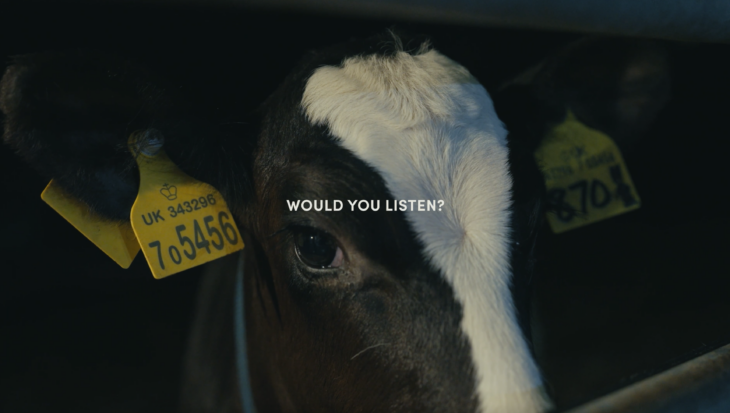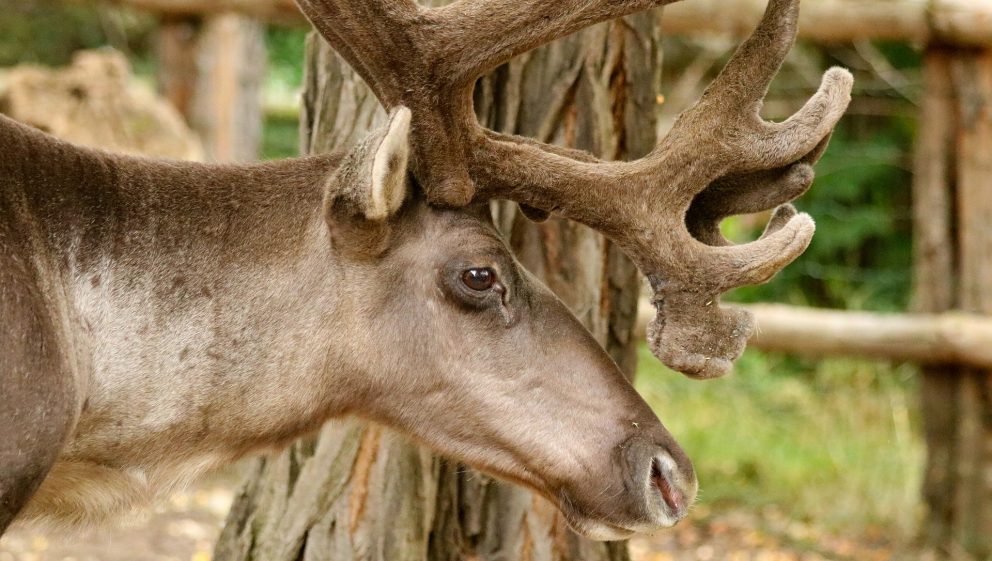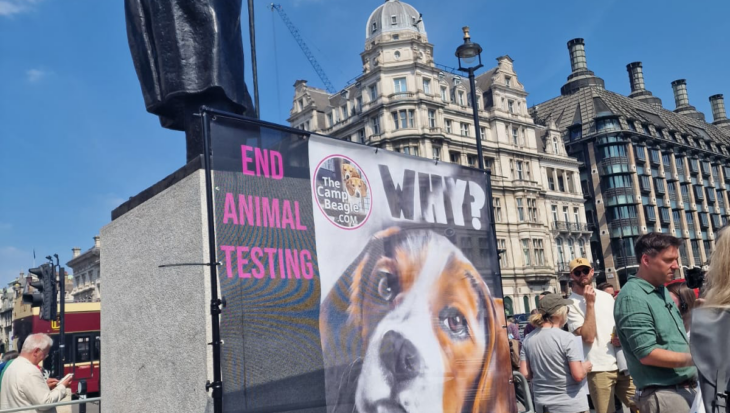Reindeer are sensitive wild animals who are adapted to live in a cold climate, foraging for lichen, herbs and other plants. They have a natural desire to roam and, as herding animals, some species migrate up to 3,000 miles a year. This is a hugely different existence to that of the reindeer kept in captivity who cannot roam freely and are often fed an inappropriate diet.
Please help to stop yet another reindeer farm from opening in Cefn Y Bedd, Wrexham in Wales.
The plans are for a Christmas tree farm and outdoor recreation centre and include a reindeer centre, as well as paddle boarding and water related activities.
The deadline for objections is this Friday – 2nd September 2022. We realise it is very short notice, but we have only just found out about it ourselves! Please take a few minutes to register your objection with Wrexham Council via this link.
Some supporters have reported problems with the council’s link. We have spoken to the council and if you can’t submit an objection via the link, please send your objection via email to: sarah.hill@wrexham.gov.uk
Unfortunately, animal welfare is not a consideration in the planning process. Whilst you may feel the most important factor to mention is animal welfare and suffering, this will not be considered by the authorities. You can of course mention your concerns, but your objection will have more bearing if you focus on a range of alternative points.
Here are some potential points to include:
Increased traffic to the area
- This will increase air pollution. Vehicle exhaust emissions including nitrogen dioxide and particulate matter associated with cars visiting the farm.
- If Heavy Goods Vehicles (HGVs) are anticipated to visit the site during construction works, there could be an associated threat to local resident’s health and safety.
- An increased amount of road traffic during construction and visitors to the site, once in operation, may affect road safety. The site is just a few minutes away from a children’s day nursery and nursing home.
Public health
- Zoonotic diseases, such as Salmonella and E. coli may be transmitted from the reindeer to visitors, then carried into the wider community, putting health and potentially lives at risk.
- If frightened and stressed from repeated interaction with the public, reindeer are more likely to try to bite, kick or to escape, possibly causing serious injuries.
Building works
- There could be an increase in noise pollution and dust creation during the ‘build’ phase of this development.
- There is also a potential for fuel and oil leaks from vehicles transporting materials and machinery to site which could contaminate land, surface waters and ground waters. In addition, spills of liquids and other materials may occur during construction.
Disruption to local life from people understandably opposed to reindeer farms
- Animal welfare concerns may potentially attract protestors who are opposed to the keeping and display of reindeer. These are sensitive wild animals who are adapted to live in a cold climate, foraging for lichen, herbs and other plants. They have a natural desire to roam and, as herding animals, some species migrate up to 3,000 miles a year. This is a hugely different existence to that of the reindeer kept in captivity in farms such as this, which is of great concern to some people.
- We know there is public sentiment, in Wales, against captive reindeer displays. Polling of people in Wales asked them, ‘to what extent would you support or oppose a ban on captive reindeer displays in Wales.’ 75% of respondents supported a ban. (542 supported a ban and 183 did not).
Wildlife
- Transmission of diseases from reindeer to wildlife.
- At a time when we must be doing all we can to protect wildlife, further encroaching on the little habitat that they have left is the wrong direction of travel.
- The use of the lake for paddle boarding will disturb existing wildlife, such as amphibians. This includes the great crested newt who are protected by Schedule 2 of the Convention of Habitats and Species Regulations (2010) and Schedule 5 of the Wildlife and Countryside Act (1981, as amended). Great crested newts are also a UK BAP and LBAP priority species. Details of species found in the area can be found in this search: (https://records.nbnatlas.org/explore/your-area#53.0955477|-3.0220892|14|ALL_SPECIES)
- The area also includes marshy grasslands and hedgerows. Visitors to the site, especially those using the existing lake for paddle boarding and water related activities may disturb wildlife living here.
- Disturbance to local wildlife, such as dragonflies and a number of bird species, including species protected under Schedule 1 of the Wildlife and Countryside Act 1981 such as the Black-tailed Godwit. This may occur during the building phase and continue via visitors to the centre.
- Habitats within the area support fox and records exist for hedgehog and otter and within the immediate area. (https://records.nbnatlas.org/explore/your-area#53.0955477|-3.0220892|14|ALL_SPECIES) These are likely to be disturbed by the building phase and continue via visitors to the centre.
It is so important to lodge as many written objections as possible, so please take a moment to submit an objection in your own words.
Thank you.



